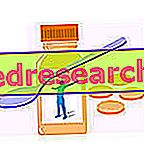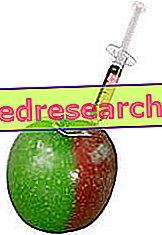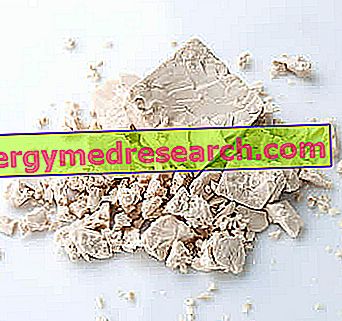PERTIROID ® a potassium perchlorate drug
THERAPEUTIC GROUP: Antithyroid
IndicationsAction mechanismStudies and clinical effectiveness Usage and dosage instructionsWarnings Pregnancy and lactationInteractionsContraindicationsUndesirable effects

Indications PERTIROID ® Potassium perchlorate
PERTIROID ® is indicated for the treatment of various forms of hyperthyroidism.
Mechanism of action PERTIROID ® Potassium perchlorate
The antithyroid action performed by PERTIROID ® is due to its active ingredient Potassium chloride. This monovalent ion, sterically similar to iodine, is able to compete with the same for the binding to specific channels, able to transport this ion, in the form of iodides, from the vascular lumen to the thyrocyte.
The reduced uptake of iodides prevents the thyrocyte from proceeding with the synthesis of thyroid hormones, thus rebalancing the blood profile of these hormones.
It is evident that the therapeutic action exerted by potassium perchlorate depends strictly on the blood concentrations of the active ingredient and iodides, so that high iodine intakes can significantly reduce the therapeutic efficacy of PERTIROID ® which generally lasts for about 12 hours from the oral intake of the medicine.
Studies carried out and clinical efficacy
1. POTASSIUM PERCHLORATE AND THYREXOSICOSES
The treatment with potassium perchlorate in combination with thioamides, has proved particularly useful in restoring the correct balance of thyroid function in the case of amiodarone-induced thyrotoxicosis.
2. POTASSIUM PERCHLORATE AND THERAPY
Currently potassium perchlorate is a second choice treatment after methimazole and propylthiouracil for hyperthyroidism. However, in some cases of non-responsiveness to conventional therapy this active ingredient in combination with other experimental drugs could be decisive in re-establishing the correct hormonal control.
3. POTASSIUM PERCHLORATE IN DAILY LIFE
Different epidemiological studies have shown that man is exposed daily to potassium perchlorate, even present in US drinking water. Despite the expectations and fortunately for citizens, these quantities, on average estimated at around 3 mg per day, did not determine any kind of variation on thyroid function and iodine uptake.
Method of use and dosage
PERTIROID ® 200 mg potassium perchlorate capsules:
the recommended effective dose is about 3 - 4 capsules per day, equal to 600 - 800 mg of potassium perchlorate daily, to be divided into at least 3 daily intakes.
The effectiveness of the therapy, understood as re-balancing of the hormonal profile, is observed only after 4 weeks of treatment, so it is advisable to prolong the therapy for longer intervals of time.
Although it is possible to define a recommended dosage, it is necessary to consider that the need for this active ingredient, given the mode of action, can vary significantly from patient to patient, especially based on the daily intake of iodine.
Warnings PERTIROID ® Potassium perchlorate
The entire period of treatment with PERTIROID ® must be supervised by your doctor, with a periodic monitoring of the haematological picture and of the blood crasis, possibly suspending the therapy promptly in case of significant alterations.
The patient must be adequately informed about the side effects of the therapy and about any associated morbid conditions.
PREGNANCY AND BREASTFEEDING
PERTIROID ® is strongly contraindicated both in pregnancy and during breastfeeding given the ability of potassium perchlorate to cross the blood-placental barrier and be secreted in breast milk, inducing fetal and neonatal hypothyroidism.
Interactions
The increased introduction of both dietetic and "pharmacological" iodura could significantly reduce the therapeutic efficacy of potassium perchlorate, sometimes requiring a transient adjustment of the dosage used.
Contraindications PERTIROID ® Potassium perchlorate
PERTIROID ® is contraindicated in case of hypersensitivity to the active ingredient or one of its excipients, changes in the hematological pattern, goiter or thyroid hypertrophy and during the period of pregnancy and lactation.
Undesirable effects - Side effects
Therapy with PERTIROID ® is often associated with the appearance of transient side effects such as nausea, vomiting, skin rashes, lymphadenopathy, nephrotic syndrome, leukopenia and haematological changes, sometimes severe as in the case of aplastic anemia.
The increase in thyroid vasculature, due to its compensatory effect, could induce a compressive mechanism on neighboring organs.
Note
PERTIROID ® sold only under medical prescription.



